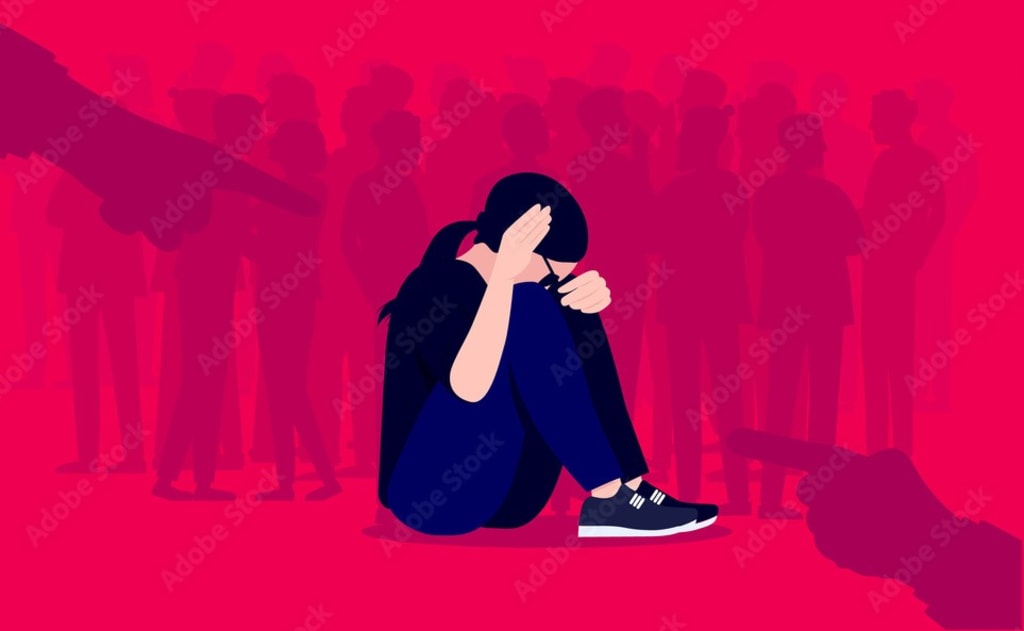The Power of Social Anxiety:
Understanding and Overcoming

The Power of Social Anxiety: Understanding and Overcoming
Social anxiety is a common and often misunderstood mental health condition that affects millions of people worldwide. It is characterized by an intense fear of social situations and the fear of being judged or rejected by others. In this article, we will explore the power of social anxiety, its impact on individuals, and strategies for overcoming it.
Table of Content
1. Introduction
2. The Definition and Significance of Social Anxiety
3. The Fear of Rejection
4. Social Anxiety Disorder: A Deeper Look
5. Myths and Misunderstandings about Social Anxiety
6. The Desire for Connection
7. Social Anxiety and Performance
8. The Impact of Social Anxiety on Relationships
9. Social Anxiety in the Modern World
10. Early Detection and Intervention
11. The Power of Platforms: Sharing Experiences
12. Fostering Social Courage
13. Conclusion
14. FAQs
1. Introduction
Social anxiety can be debilitating, making it difficult for individuals to engage in social interactions and pursue their goals. It often begins in adolescence or early adulthood and can persist for years if left untreated. However, with the right understanding and support, it is possible to manage and overcome social anxiety.
2. The Definition and Significance of Social Anxiety
Social anxiety is defined as an intense fear of social situations where individuals feel judged, embarrassed, or humiliated. It goes beyond shyness and can significantly impact a person's daily life, relationships, and overall well-being. Understanding the significance of social anxiety is crucial in addressing and providing support for individuals experiencing it.
3. The Fear of Rejection
At the core of social anxiety lies the fear of rejection. People with social anxiety become hyper-aware of how they are perceived by others, constantly seeking signs of approval and avoiding any potential disapproval. This fear stems from the belief that rejection equates to being less than they want to be or less than what society expects them to be.
4. Social Anxiety Disorder: A Deeper Look
Social anxiety disorder is a diagnosable mental illness that goes beyond normal levels of social apprehension. It involves excessive worry and fear in social situations, leading individuals to avoid them altogether. Social anxiety disorder can manifest in various ways and significantly impact a person's quality of life.
5. Myths and Misunderstandings about Social Anxiety
There are several myths surrounding social anxiety that contribute to its misunderstanding. One common myth is that individuals with social anxiety prefer to be alone, which is not necessarily true. Research shows that people with social anxiety desire social connections but struggle with the fear of judgment and rejection.
6. The Desire for Connection
Contrary to popular belief, individuals with social anxiety long for meaningful relationships and social interactions. However, their anxiety can make it challenging to engage in certain situations or with specific individuals. Recognizing this desire for connection can help in providing support and understanding to those with social anxiety.
7. Social Anxiety and Performance
While some people associate social anxiety with a fear of public performance, it can also manifest in smaller, more intimate conversations. People with social anxiety may excel in careers that involve social evaluation and performance, such as acting or sports. Understanding this complexity is crucial in addressing and supporting individuals with social.
8. Fostering Social Courage
Overcoming social anxiety requires building social courage, which involves gradually facing and navigating challenging social situations. Here are some strategies to foster social courage:
a. Gradual Exposure
One effective approach is gradual exposure. Start by exposing yourself to mildly anxiety-provoking situations and gradually increase the difficulty level. This step-by-step approach allows you to build confidence and adapt to social settings at your own pace.
b. Cognitive Restructuring
Challenge negative thoughts and beliefs that contribute to social anxiety. Replace them with more realistic and positive thoughts. For example, instead of thinking, "Everyone will judge me," reframe it as, "I am capable and deserving of positive social interactions."
c. Relaxation Techniques
Learning and practicing relaxation techniques, such as deep breathing, progressive muscle relaxation, or mindfulness meditation, can help reduce anxiety in social situations. These techniques promote a sense of calmness and allow you to stay more present and focused.
d. Social Skills Training
Enhancing social skills can boost confidence and ease social interactions. Consider participating in social skills training programs or seeking the guidance of a therapist who can help you develop effective communication, assertiveness, and conflict resolution skills.
e. Seek Support
Don't hesitate to seek support from friends, family, or support groups. Sharing your experiences with others who understand can provide validation and encouragement. Additionally, consider reaching out to a mental health professional who specializes in anxiety disorders. They can provide valuable guidance and evidence-based interventions.
Conclusion
Social anxiety is a powerful force that can impact various aspects of a person's life, including relationships, career opportunities, and overall well-being. Understanding social anxiety and its underlying dynamics is crucial in providing support and promoting recovery.
By challenging negative thoughts, gradually facing fears, and building social courage, individuals can overcome social anxiety and lead fulfilling lives. Remember, seeking help is not a sign of weakness but a proactive step towards personal growth and well-being.
If you or someone you know is struggling with social anxiety, reach out for support and explore the resources available. With the right tools and support system, it is possible to overcome social anxiety and cultivate meaningful connections in a world that thrives on social interactions.
FAQs
Q: Can social anxiety go away on its own?
A: While some individuals may experience a reduction in social anxiety symptoms over time, it is unlikely to go away on its own. Seeking professional help and implementing strategies to manage social anxiety can significantly improve symptoms and quality of life.
Q: Is medication necessary to treat social anxiety?
A: Medication can be helpful in managing social anxiety, especially in severe cases. However, it is not the only solution. Therapy, self-help techniques, and lifestyle changes can also be effective in treating social anxiety.
Q: How long does it take to overcome social anxiety?
A: The duration to overcome social anxiety varies from person to person. It depends on various factors such as the severity of symptoms, individual resilience, and the effectiveness of treatment strategies. With consistent effort and support, significant progress can be made over time.
About the Creator
Tajamul Hassan
An accomplished professional in the field of Management Sciences, Nutrition, and Health and Fitness. Over a decade of extensive experience in development as well in Health Sector. Dedicated to improving people's lives.






Comments
There are no comments for this story
Be the first to respond and start the conversation.